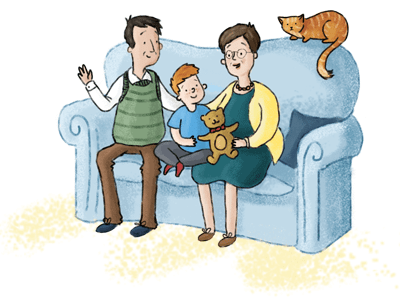
Hannah Williams, Associate and Solicitor in the Bromleys Care Proceedings & Children Services Department, explores what kinship care is and how you can access support if you are caring for a child.
What is kinship care?
Kinship care is when a child cannot live with their parents and is raised by other family members or friends. Kinship carers can be grandparents, aunts, uncles, older siblings or other adults who have a connection to the child.
Kinship care includes children who might be living in an informal arrangement, are subject to a Child Arrangements Order or Special Guardianship Order or are placed with kinship foster carers. It is also commonly referred to as Friends and Family Care and is different to private fostering.
Private fostering is if both the following apply:
- You’re not a close relative, i.e., grandparent, brother or sister, uncle or aunt or stepparent, or a person with parental responsibility; and
- You’re looking after a child who’s under 16 (under 18 if they’re disabled) for at least 28 continuous days; and
- This arrangement is made privately, not by a local authority.
You must tell your local council about this arrangement at least six weeks before the arrangement begins. If the arrangements is to begin within six weeks, the local authority must be notified immediately. When the local authority is notified of a potential private fostering arrangement, they will arrange for a social worker to conduct checks, within seven days, to make sure that the arrangement is suitable.
Understanding your rights as a kinship carer
If you are caring for a child long-term, you can get parental responsibility for the child by applying for a Child Arrangement Order or Special Guardianship Order.
Having parental responsibility means you can make decisions about a child’s upbringing, education, and healthcare, for example:
- Choose the child’s school
- Agree to the child’s medical treatment
- Look after the child’s finances and property
- Apply for a passport for the child
- Stop the child from being taken abroad without your permission
However, in some circumstances, such as a change of name, choosing of a child’s school, or obtaining a passport, the other person/s with parental responsibility should be consulted.
It is important that kinship carers understand their rights and the support that is available to them when caring for children. The Local Authority should provide support to limit the chance of the placement breaking down. In some instances, such as when approved by the local authority as a kinship foster carer or when a Special Guardianship Order has been granted, there is access to financial support.
How can we help?
If you would like to learn more about how you can gain access to the services provided for Kinship carers, learn more about the application process for a child arrangement order, or if you need assistance in attaining a special guardianship order, we are here to help.
Our expert solicitors understand the complexities of private family matters and will be able to help you and your family.
Call us today on 0161 884 0904 or email us at bromleys@bromleys.co.uk to speak to our empathetic team.











